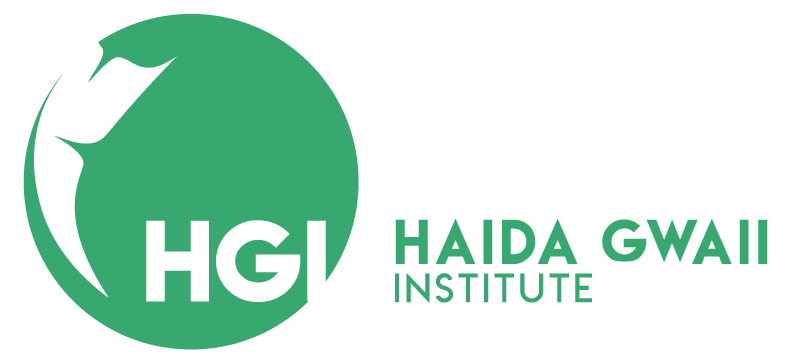Haida Gwaii
Summer Sessions
Haida Gwaii Summer Session in Plants, People, and Place
May to June, HlG̱aagilda Skidegate
The Haida Gwaii Summer Session includes a suite of four block style courses, developed as a continuous two month program. Each course will integrate classroom and field instruction with local guest speakers and numerous activities in the natural and human environments of Haida Gwaii. All courses are accredited through the University of British Columbia and are well suited for undergraduate students in their third or fourth year of a degree, graduate students, and other lifelong learners wishing to continue their studies.
We follow a rolling deadline, which means we will accept and review applications until the program is full. Seats are limited and we encourage interested students to apply early. Students must attend all four courses in order to participate.
Please scroll down for more information on each course, or view details on tuition and program fees, and the application process.

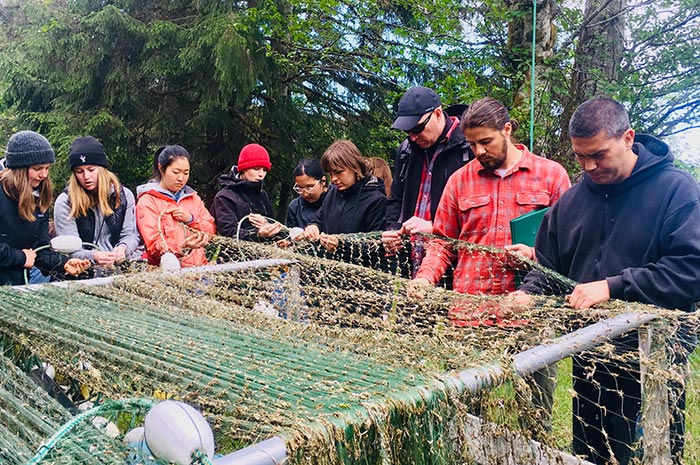
HGSE 330 Social-Ecological Change: An Introduction to Systems Thinking and Resilience
As human beings in an interconnected world, we face a number of complex and seemingly intractable problems including such things as climate change, food security, global poverty and pandemic diseases. Fostering social and ecological resilience will help us better understand how to face and address these problems. Resilience is the ability of a linked social and ecological system to respond to stress and build the adaptive capacity of individuals and groups to respond to stress. This course provides an opportunity to learn and apply the conceptual tools of systems thinking and complexity theories for fostering social change and building adaptive capacity through application to cases on Haida Gwaii. Students are provided with an introduction to the conceptual tools of systems thinking, complexity and resilience that help understand the dynamics of social-ecological change and social innovation. The course will also involve additional local, community educators from Haida Gwaii and will incorporate local knowledge and local case examples to ground systems-based and complexity concepts.
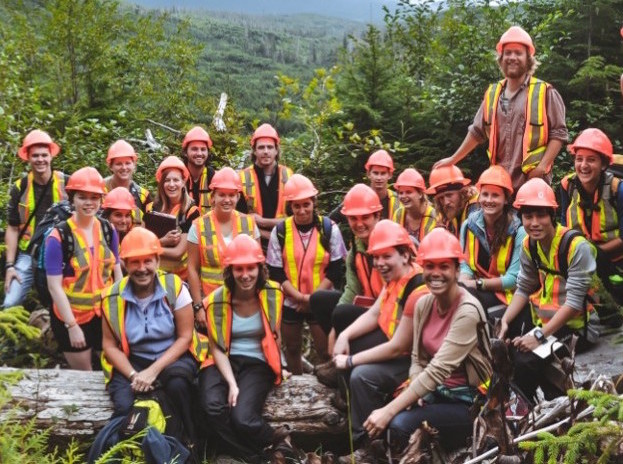
HGSE 331 Environmental Assessment in Cross-Cultural and Indigenous Contexts
This course is an introduction to the field and practice of environmental assessment (EA) in Canada with specific reference to EA processes in cross-cultural and Indigenous contexts. This course will make specific references to cases on Haida Gwaii and will involve additional local, community educators from Haida Gwaii. We will explore processes and techniques for incorporating environmental considerations in planning and evaluating proposals for future undertakings that may have significant social and ecological effects. The course provides an overview of the methodologies for the design and conduct of environmental impact studies that adhere to the Crown’s legal and constitutional obligations to Indigenous Peoples. The main objective of this course is to introduce students to environmental assessment, with a focus on the origins, purposes, processes and gradual evolution of EA toward a sustainability-oriented framework, with particular reference to the Canadian federal environmental assessment regime. In particular, the course will make specific reference to the incorporation of Indigenous Knowledge into EA practice and the implications of such decision-making processes in light of the Crown’s Duty to Consult and Accommodate, self-governance, self-determination and reconciliation.
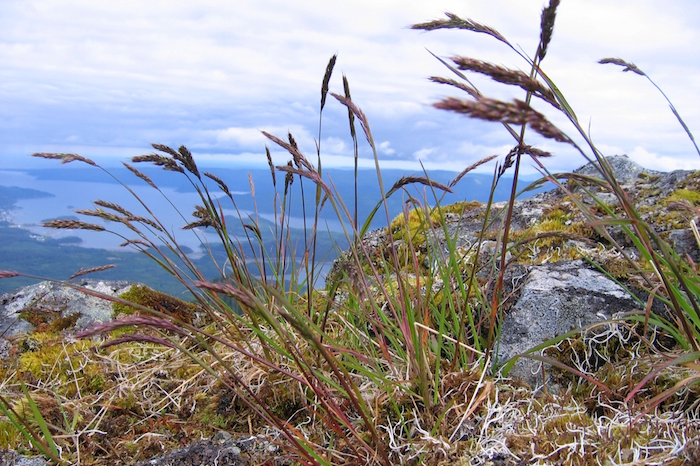
HGSE 332 Plant Ecology and Diversity
Plant ecology is the study of the distribution and abundance of plants, the effects of environmental factors upon the abundance of plants, and the interactions among and between plants and other organisms. In this course we address these topics within the ecosystems of the coastal temperate rainforest in general, and of Haida Gwaii in particular. We will discuss the history of botanical exploration, and of ecosystem classification and mapping, on Haida Gwaii. We will learn to identify key plants and ecosystems and their ecological importance. We will meet Haida botanists and land managers, to hear some of their stories about economic, social and cultural uses of plants. We’ll also spend time with wildlife biologists and recreation and tourism experts to learn about the importance of forested and non-forested ecosystems and the relationships between plants, wildlife and humans.
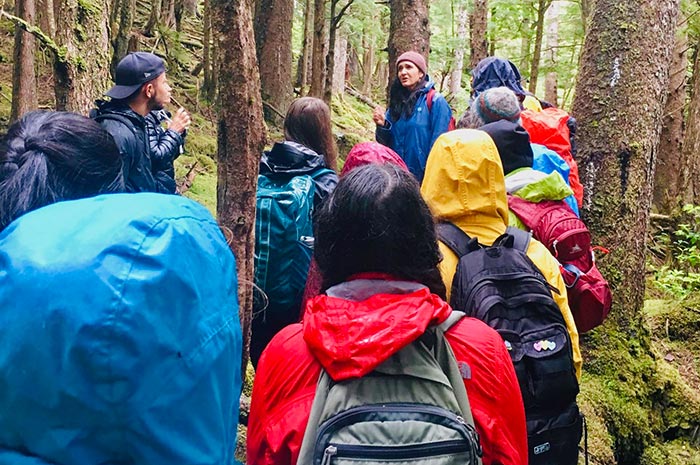
HGSE 333 Indigenous Plant Knowledge: Ethnoecology and Ethnobotany
Ethnoecology is the study of cultural ecological knowledge and of the interactions between human societies and their environments, including other species. Ethnobotany is the study of the direct interrelationships between people and the plants, past, present and future. In this course we address these topics primarily within the context of Haida culture and language and the ecosystems of Haida Gwaii along with examples from other Indigenous communities in British Columbia and the Yukon. We will discuss the historical roots of ethnoecology and ethnobotany, the directions and trends in these fields over the past century, and their relevance in today’s world. It is important when discussing these topics to address the intersections between Canadian colonial history land-based practices and the ongoing impacts on Indigenous Peoples. We will learn to identify key plants and ecosystems and their cultural importance, will focus on traditional land and resource management systems, and discuss issues of ethics and intellectual properties rights in relation to Indigenous Peoples’ knowledge.
